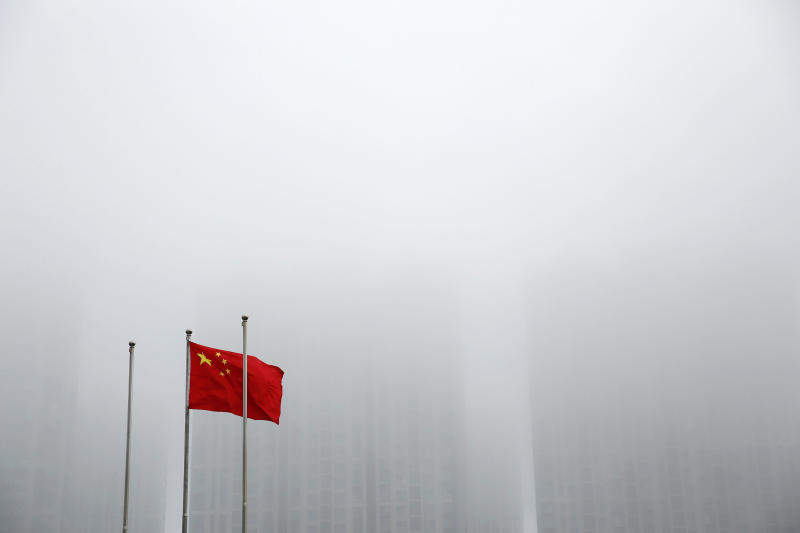China has to cooperate more with other countries by respecting their intellectual property rights, says scholar
Sign up now: Get insights on Asia's fast-moving developments

If China can develop deeper technological cooperation with companies from countries like the UK, this will put pressure on the US, said Professor Xiong Yu of Northumbria University.
PHOTO: REUTERS
CHONGQING - China needs to boost cooperation with other countries at this critical juncture when the United States has placed restrictions on exporting its technology to the country, a Chinese scholar has said.
To do so, China needs to first of all respect the intellectual property rights of others, said Professor Xiong Yu of Northumbria University.
Speaking at a forum on artificial intelligence (AI) in Chongqing, Prof Xiong pointed out that two Chinese companies had wanted to acquire DeepMind, the London start-up behind the AI programme AlphaGo.
Instead, both companies lost out to Google, which acquired DeepMind for US$660 million (S$903 million) in 2014. The company was behind the AI that defeated the world's top-ranked player at the board game Go.
DeepMind thought its intellectual property rights would be better protected in the US, said Prof Xiong, who is active in academic networks in both the United Kingdom and China.
The US, which has labelled China a "strategic competitor" that seeks to undermine its technological supremacy, has imposed export controls on key technologies to China.
It blames China for stealing American intellectual property and forcing American companies operating in China to share their technology, and wants to stunt Beijing's "Made in China 2025" strategy.
This is a plan that aims to develop sophisticated manufacturing capabilities and allow the country to move up the global value chain.
"More than ever, we need to cooperate with other countries," said Prof Xiong, adding that China needs to develop itself into a place where companies will be assured about developing and test-bedding their technologies.
"We have to respect others. We don't have to only stress indigenous innovation, actually a lot of technology can be jointly innovated, only this way will we be able to bring the newest technology from others to our market," he said.
Beijing also needs to encourage more enterprises to invest overseas and attract foreign technology to China, but in a way in which both sides benefit and the rights of foreign companies are ensured, he said.
China has advantages such as the availability of large quantities of data, and a market of 1.3 billion people, factors attractive to tech companies, he said.
If China can develop deeper technological cooperation with companies from countries like the UK, this will put pressure on the US, Prof Xiong told reporters after the forum.
Other speakers at the forum included leaders of tech firms and academics, such as senior vice-president Xu Yulin of iFlytek and Professor Liu Yun Jie from the Chinese Academy of Engineering.
The forum was one of the events at the inaugural Smart China Expo, a three-day trade fair and technology conference that will end on Saturday (Aug 25).


